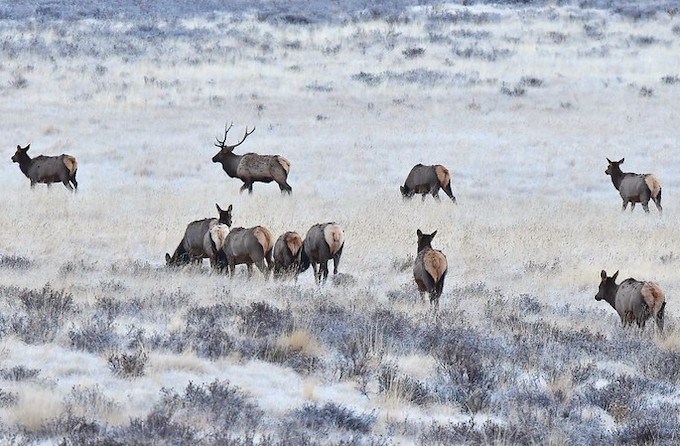This content was originally published by the Longmont Observer and is licensed under a Creative Commons license.
By Eric Galatas, Colorado News Connection
DENVER -- Colorado Parks and Wildlife on Tuesday released its 2020 Status Report on big-game winter range and migration corridors. The report marks a big step in Gov. Jared Polis' 2019 executive order to conserve critical wildlife habitat.
Madeleine West, director of the Theodore Roosevelt Conservation Partnership, said this is the first time the agency has compiled a comprehensive assessment of big-game seasonal range and migration habitat science in one place.
"We can take a statewide look at migration and try to identify those priority areas where you'll get the biggest bang for your buck, if you are trying to improve the habitat and if you're trying to reduce threats," she said.
West said the report lays out the best-available science and ongoing research on Colorado's migratory big-game populations, including mule deer, elk, pronghorn, bighorn sheep and moose. The report also touches on the biggest challenges for wildlife, including habitat fragmentation due to oil and gas development.
West said the report lays a good foundation for tackling those challenges, including reducing vehicle collisions with strategically placed wildlife crossings. She added that the report also shows that it's possible to continue to extract oil and gas, and help big game succeed at the same time, if done the right way.
"Because the science shows that, at a certain level of development, the animals still can move through," she said. "But when you pass that density threshold of one pad per square mile, it really starts to impede the movement of the herd."
The recommendations set the stage for the next phase of the governor's executive order. By July 1, Colorado Parks and Wildlife is expected to deliver a report that includes actions needed at the policy level to conserve big-game species and their habitat.
The report is online at cpw.state.co.us, and the executive order is at trcp.org.
---
Support for this reporting was provided by The Pew Charitable Trusts.


.jpg;w=120;h=80;mode=crop)
